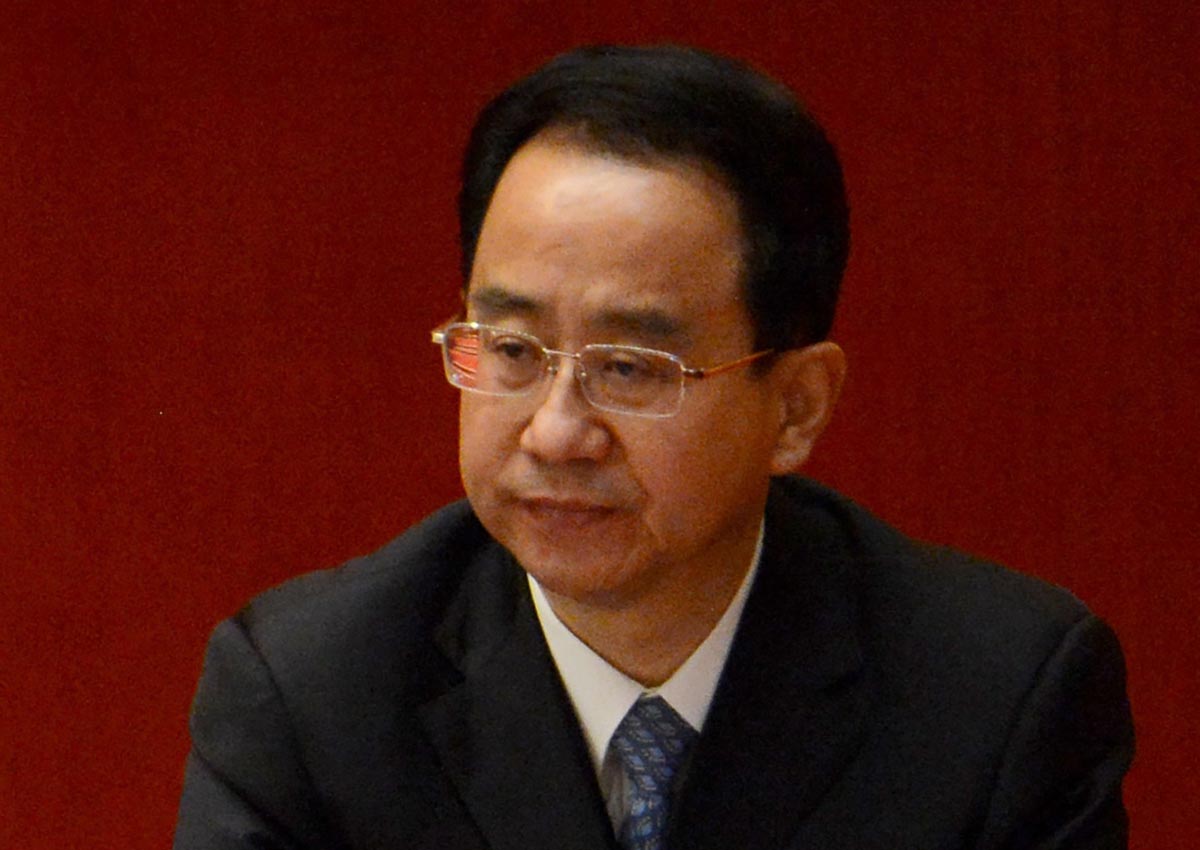Former Chinese presidential aide Ling Jihua has been formally charged with corruption, and analysts say the lengthy investigation underscores the sensitivity of his case.
Ling was accused of taking bribes, illegally obtaining state secrets and abuse of power, state news agency Xinhua reported yesterday .
According to a statement by China’s state prosecutor, Ling, 59, used his many high-ranking positions in government to solicit bribes, seek favours for friends and illegally obtain state secrets.
It added that the circumstances were “extremely serious” and that his actions had resulted in major loss to public property and hurt national and public welfare. Ling, who served ex-president Hu Jintao, will face trial at a court in Tianjin.
One of the “tigers” or political heavyweights ensnared by China’s sweeping anti-corruption campaign waged by Mr Hu’s successor Xi Jinping, Ling was the head of the Communist Party’s General Office of the Central Committee.
Like fellow “tiger” and top politician Zhou Yongkang, Ling will be tried in Tianjin because it is a neutral location where he has no past links, said East Asian Institute senior research fellow Chen Gang.
Ling had been tipped for a position in the party’s elite Politburo but he was demoted in 2012 for allegedly trying to cover up a car crash in Beijing that killed his son.The younger Ling was found dead in a Ferrari with two semi-nude women.
The authorities announced in December 2014 that Ling was being investigated and the relatively longer time taken for him to be formally charged compared to other “tigers” was because of Ling’s position in the general office, which has been described as the “nerve centre” of the party, Dr Chen said.
“Ling Jihua’s corruption case is one of the most complicated to try because of the access he had to sensitive personnel and security material,” Dr Chen said. “Still, the authorities are keen to wrap this up so it doesn’t drag on too long.”
Ling’s corruption case took on additional political and diplomatic sensitivity after reports emerged alleging that he had handed state secrets over to his younger brother Ling Wancheng, who later left for the United States, where he is still residing.
In January, the Chinese authorities confirmed they were “handling the matter of Ling Wancheng” and were “in talks with the US”, without offering further details. A month later, however, Mr Ling Wancheng issued a statement through a lawyer in the US denying allegations that he had defected and turned informant.
Hong Kong-based political analyst Willy Lam said yesterday’s announcement could mean that a settlement had been worked out behind the scenes between the two countries about Mr Ling Wancheng’s case.
But he added the announcement could also be timed as a way for President Xi to reassert his authority over the party, after rumours had emerged in recent months of internal dissent about his leadership.
“It would be good timing for Xi because this case can be used to re-establish his prestige as someone who has done better than his predecessors in enforcing discipline,” Professor Lam said.
“At the same time he can intimidate his enemies, to remind them that he’s still in control with his anti-corruption campaign.”

This article was first published on May 14, 2016.
Get a copy of The Straits Times or go to straitstimes.com for more stories.





